Will Galvanized gopher mesh leach into my garden underground?
Mike Wardynski
3 years ago
Related Stories
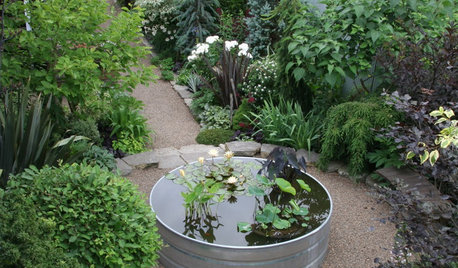
LANDSCAPE TRENDSStock Tank Style: The Garden and Patio Edition
Galvanized-metal water troughs bring hardworking style to patios, plantings, fountains and ponds
Full Story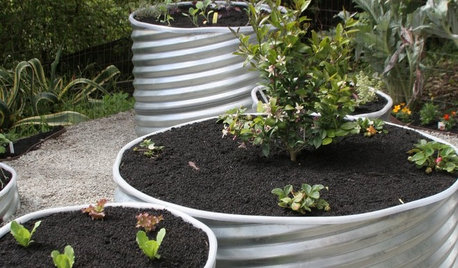
GARDENING GUIDES8 Materials for Raised Garden Beds
Get the dirt on classic and new options for raised vegetable and plant beds, to get the most from your year-round garden
Full Story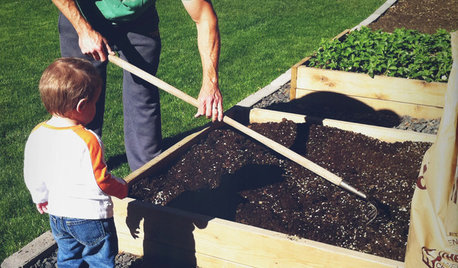
GARDENING AND LANDSCAPINGBuild a Raised Bed to Elevate Your Garden
A bounty of homegrown vegetables is easier than you think with a DIY raised garden bed to house just the right mix of soils
Full Story
GREEN BUILDINGHow to Harvest Rainwater for Your Garden
Conserve a vital resource and save money by collecting stormwater for irrigation in a barrel or tank
Full Story
INSPIRING GARDENSFrom Concrete Lot to Gracious Organic Garden in Seattle
Plants, pests and even weeds have a place in this landscape, which offers an edible bounty and a feast for the eyes
Full Story
LANDSCAPE DESIGNYour Mini Guide to Great Garden Edges
Get the scoop on trenches to the skinny on bender board, to help keep your garden beds as tidy as you like
Full Story
EDIBLE GARDENS7 Tips to Ensure Success With Raised Bed Gardening
Raised bed gardening is a favorite for edible plants. Here’s how to get it right
Full Story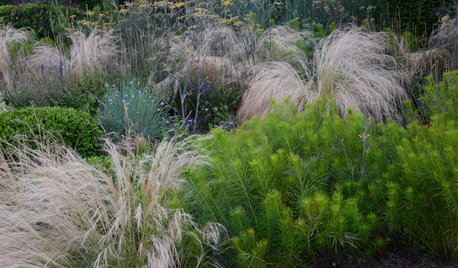
GARDENING GUIDES4 Ways to Break the Rules in Your Garden
For a more creative landscape design, take a different approach to planting
Full Story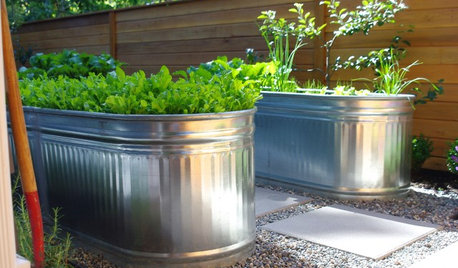
GARDENING GUIDESHow to Turn a Stock Tank Into a Planter for Edibles and More
Give your container garden a fresh look by converting a galvanized-metal trough into a large planter
Full Story
EDIBLE GARDENSSummer Crops: How to Grow Tomatoes
Plant tomato seedlings in spring for one of the best tastes of summer, fresh from your backyard
Full StoryMore Discussions







morpheuspa (6B/7A, E. PA)
gardengal48 (PNW Z8/9)
morpheuspa (6B/7A, E. PA)
daninthedirt (USDA 9a, HZ9, CentTX, Sunset z30, Cfa)
morpheuspa (6B/7A, E. PA)
daninthedirt (USDA 9a, HZ9, CentTX, Sunset z30, Cfa)
morpheuspa (6B/7A, E. PA)